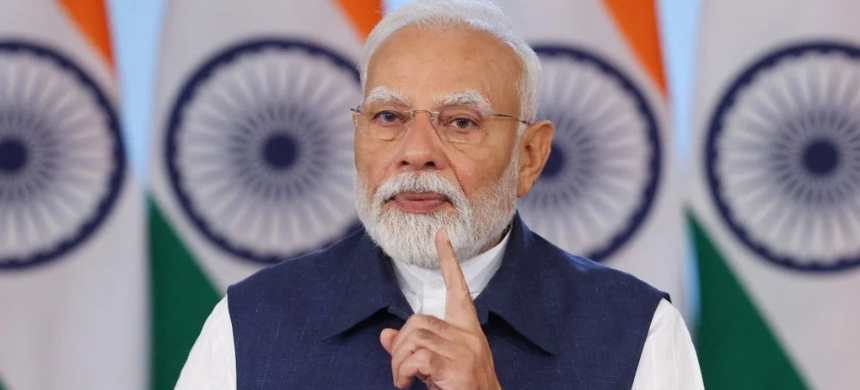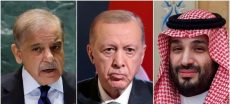Modi Threatens Pakistan Again, Rules Out Peace Talks Amid Post-Ceasefire Tensions
NEW DELHI – Indian Prime Minister Narendra Modi has reignited regional tensions with a series of aggressive remarks against Pakistan, dismissing the prospect of peace and warning of renewed conflict despite the recent ceasefire agreement.
In a nationally televised address on Monday, Modi declared that “Operation Sindoor has been suspended, not ended,” signaling that the military operation against Pakistan could resume at any moment.
“Pakistan must know that the strikes are not over. They have only been suspended after Pakistan promised it will act against terrorists and terror facilities,” Modi stated, warning that India would judge Pakistan’s every move going forward.
Rigid Conditions for Dialogue
The Indian premier ruled out comprehensive talks, insisting that any dialogue would be strictly limited to issues of “terrorism and Pakistani Kashmir”—a term New Delhi uses for Azad Jammu and Kashmir (AJK).
“Talks and terrorism cannot go together. Trade and terrorism cannot go together. Water and blood cannot flow together,” Modi declared.
He added that India will not tolerate what he called “nuclear blackmail”, referencing Pakistan’s deterrence strategy, and vowed swift retaliation for any perceived future aggression.
Pakistan’s Role Downplayed
Modi claimed that India struck deep inside Pakistan during the recent conflict and that Islamabad requested the ceasefire, portraying the agreement as a result of Pakistan’s submission rather than mutual diplomacy.
“We will respond in our own way and at our own time,” Modi said, asserting that India has redefined the rules of warfare.
Regional Uncertainty Persists
These remarks come days after a fragile ceasefire was brokered between the two nuclear-armed nations following intense cross-border clashes. While Pakistan has remained firm in its commitment to peace and defensive military operations, Modi’s speech has cast serious doubt on the durability of the truce.
Analysts warn that Modi’s statements could derail diplomatic efforts and provoke further instability in South Asia, particularly in the wake of recent escalations and heightened militarization on both sides of the border.











